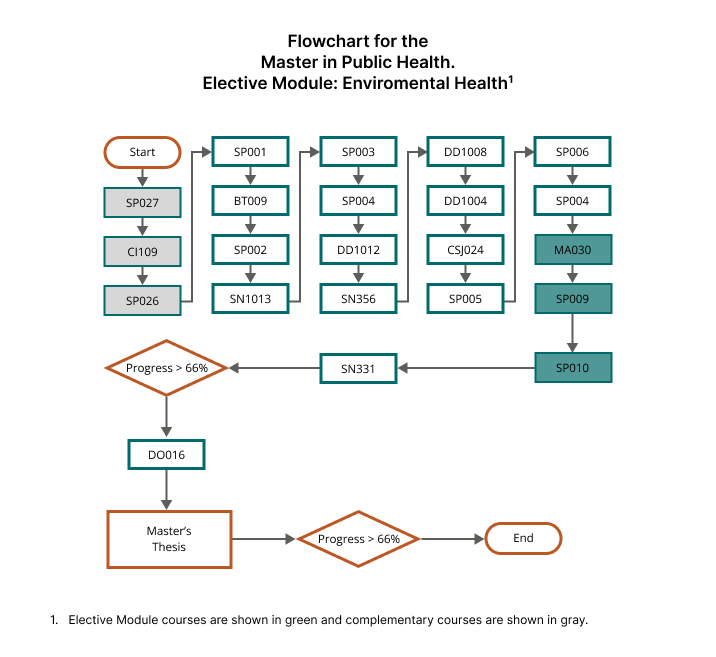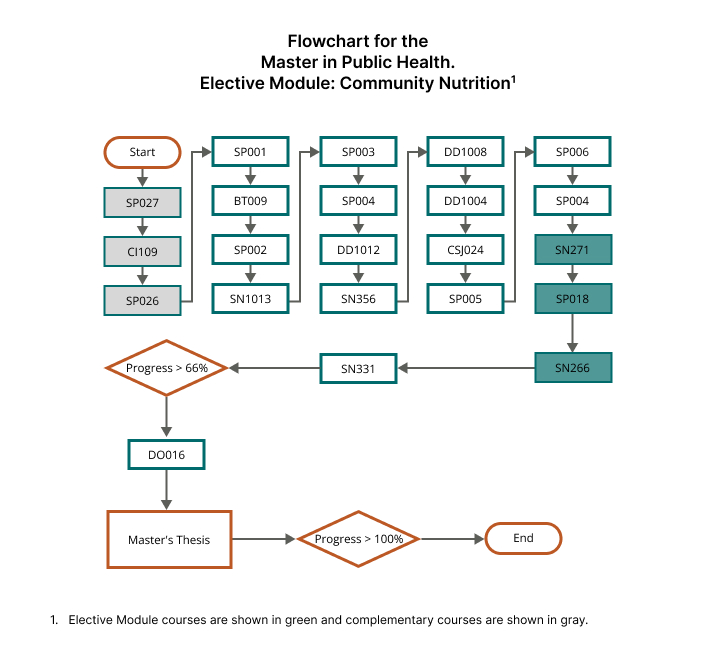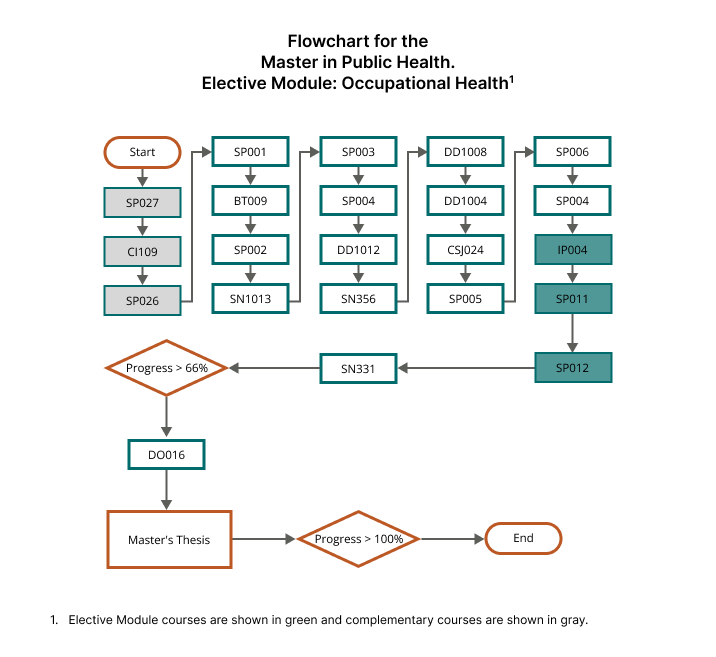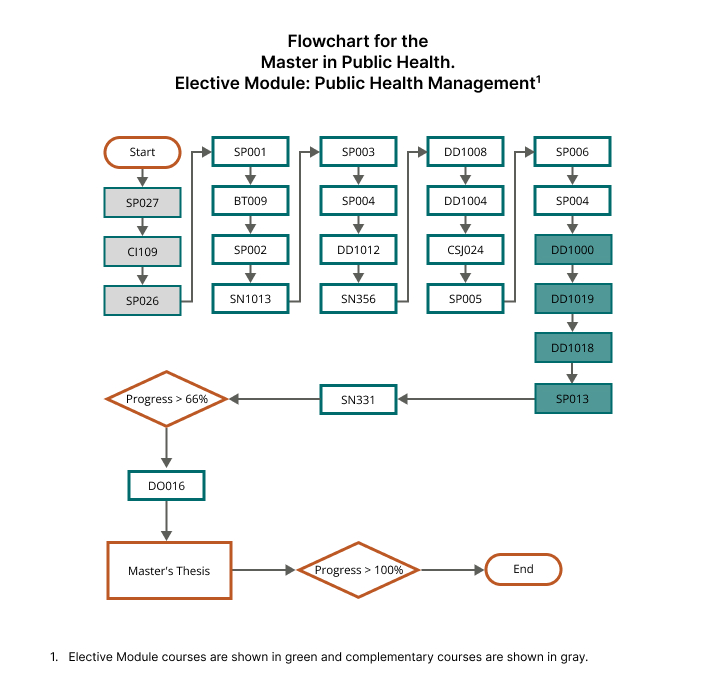
Description
The Master in Public Health provides comprehensive training, equipping professionals with the tools and competencies needed to address public health challenges with a global perspective. This approach enables them to deliver high-quality and patient-centered health services. This program is designed to offer training aligned with evolving societal needs, adapting to both internal and external changes while remaining in step with scientific and technological advancements. The curriculum integrates theoretical knowledge, practical case analysis, and applied exercises, allowing participants to deepen their understanding of public health across its core areas of action.
The primary objective of the Master in Public Health program is to train experts from diverse disciplines in the broad field of public health, enabling them to address population health issues from multiple perspectives through interventions that promote, protect, and restore community health.
This Master’s program is designed to foster academic excellence, developing reflective, critical, and humanistic thinking. It is suitable for both experienced professionals seeking specialization from a broad and applied approach and recent graduates looking to enter the field.
The Master in Public Health features an innovative academic structure that emphasizes scientific knowledge and research, equipping students with the skills and sustainable solutions needed to meet the evolving demands of public health professionals.
Learning Objectives
Competencies
- To train professionals capable of addressing major public health challenges by designing and managing collective actions for the protection, restoration, and promotion of health, ensuring high-quality and relevant healthcare for the population.
- To facilitate teaching in new or unfamiliar environments within broad contexts, equipping learners with sufficient knowledge and resources to make informed judgments, decisions, and problem-solving strategies.
- To provide scientific inquiry tools that enable students to conduct research or produce innovative work, demonstrating mastery of the subject matter while upholding ethical standards.
Outcomes
- Strengthen the theoretical and methodological foundations of public health, with an emphasis on activities that foster logical thinking and scientific reasoning.
- Assess the health needs of the population to develop responses that address both current and potential challenges, considering social determinants of health and individual rights.
- Evaluate health systems to propose improvement strategies that are adapted to the needs of the population.
- Analyze economic and social determinants as well as health policies, understanding how they integrate into public health interventions.
- Design and evaluate evidence-based public health plans, programs, projects, and services aimed at promoting, restoring, and protecting population health.
- Identify health problems early and propose solutions that enhance quality of life.
Who Should Apply
The program is designed for two student profiles, each with distinct characteristics but complementary perspectives, enabling a comprehensive academic approach:
- Professionals and graduates: This group includes individuals from life sciences (e.g., medicine, nursing, biology, veterinary medicine), as well as environmental sciences, statistics, economics, sociology, chemistry, and pharmacy, among others. They seek education and training to perform public health functions in various professional or research settings.
- Other professionals and university graduates: This group consists of professionals and graduates from diverse fields who aim to acquire the necessary tools to enhance their efficiency in their roles and provide high-quality service in public health.
Duration
The maximum time available to complete the master’s program is 24 months. The credit structure of the MA in Public Health is as follows:
General Education: 48 credits
Required: 13 credits
Electives: 9 credits
Structure
| MASTER IN PUBLIC HEALTH | |||||
|---|---|---|---|---|---|
| CODE | SUBJECT | PREREQUISITE | CREDITS | ||
| TRAINING COMPLEMENTS | |||||
| SP027 | Writing, Reading and Comprehension of Written Works | N/A | - | ||
| CI109 | Basic Mathematics | N/A | - | ||
| SP026 | Fundamental Concepts in Public Health | N/A | - | ||
| GENERAL EDUCATION | |||||
| SP001 | Fundamental Concepts in Public Health | N/A | 2 | ||
| BT009 | General Bioethics | N/A | 3 | ||
| SP002 | Social Determinants in Health | N/A | 2 | ||
| SN1013 | Epidemiology I | N/A | 4 | ||
| SP003 | Demographics and Public Health | N/A | 2 | ||
| SP004 | Health-Disease and Equity Process | N/A | 3 | ||
| DD1012 | Health Systems | N/A | 4 | ||
| SN356 | Epidemiology II | N/A | 4 | ||
| DD1008 | Management of Health Services | N/A | 3 | ||
| DD1004 | Health Economics | N/A | 5 | ||
| CSJ024 | Statistics I | N/A | 4 | ||
| SP005 | Health and Social Protection Policies | N/A | 4 | ||
| SP006 | Public Health Surveillance | N/A | 3 | ||
| SP007 | Design and Evaluation of Public Health Programs | N/A | 3 | ||
| SN331 | FP Health Seminar | N/A | 2 | ||
| ELECTIVES | OPTATIVE MODULE: ENVIRONMENTAL HEALTH | ||||
| MA030 | Pollutants in the Environment | N/A | 2 | ||
| SP009 | Environmental Risks and Public Health | N/A | 3 | ||
| SP010 | Environmental Toxicology and Public Health | N/A | 4 | ||
| OPTATIVE MODULE: COMMUNITY NUTRITION | |||||
| SN071 | Public Health Applied to Nutrition | N/A | 4 | ||
| SP018 | Tools for the Development of Community Nutrition Programs | N/A | 2 | ||
| SN066 | Food, Health and Communication | N/A | 3 | ||
| OPTATIVE MODULE: OCCUPATIONAL HEALTH | |||||
| IP004 | Occupational Medicine | N/A | 2 | ||
| SP011 | Occupational Toxicology | N/A | 4 | ||
| SP012 | Prevention of Specific Occupational Hazards | N/A | 3 | ||
| OPTATIVE MODULE: PUBLIC HEALTH MANAGEMENT | |||||
| DD1000 | Strategic HR Management | N/A | 2 | ||
| DD1019 | Team Management Techniques | N/A | 2 | ||
| DD1018 | Management and Organizational Leadership Techniques | N/A | 2 | ||
| SP013 | Care Communication | N/A | 3 | ||
| REQUIRED | |||||
| DO016 | Methodology of Scientific Research | N/A | 3 | ||
| Thesis | N/A | 10 | |||
| TOTAL | 70 | ||||
Diagram




Optative Modules
| OPTATIVE MODULE: ENVIRONMENTAL HEALTH | |||
|---|---|---|---|
| MA030 | Pollutants in the Environment | N/A | 2 |
| SP009 | Environmental and Public Health Risks | N/A | 3 |
| SP010 | Environmental Toxicology and Public Health | N/A | 4 |
| OPTATIVE MODULE: COMMUNITY NUTRITION | |||
|---|---|---|---|
| SN071 | Public Health Applied to Nutrition | N/A | 4 |
| SP018 | Tools for the Development of Community Nutrition Programs | N/A | 2 |
| SN066 | Food, Health and Communication | N/A | 3 |
| OPTATIVE MODULE: OCCUPATIONAL HEALTH | |||
|---|---|---|---|
| IP004 | Occupational Medicine | N/A | 2 |
| SP011 | Occupational Toxicology | N/A | 4 |
| SP012 | Prevention of Specific Occupational Risks | N/A | 3 |
| OPTATIVE MODULE: PUBLIC HEALTH MANAGEMENT | ||||
|---|---|---|---|---|
| DD1000 | Strategic Human Resources Management | N/A | 2 | |
| DD1019 | Teamwork Management Techniques | N/A | 2 | |
| DD1018 | Management Techniques and Organizational Leadership | N/A | 2 | |
| SP013 | Healthcare Communication | N/A | 3 | |
Degree
Upon successful completion of the courses and the Master's Thesis, and upon meeting all academic, administrative, and financial requirements established by the university, students will be awarded the academic degree:
MASTER IN PUBLIC HEALTH